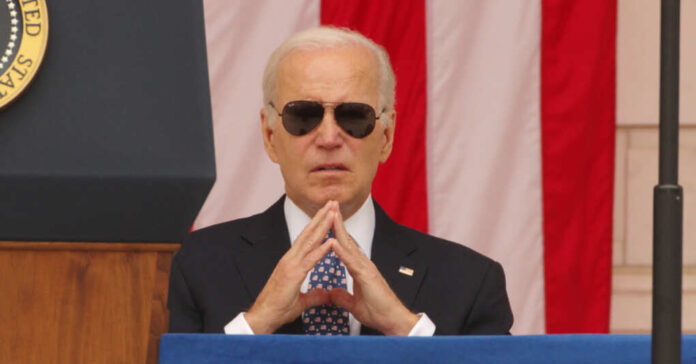
In a decision that surprised no one, the Supreme Court ruled that President Joe Biden’s push to wipe out student loan debt under the HEROES Act was ruled unconstitutional and a massive overreach of presidential power.
That means that for those borrowers who enjoyed the benefits of their college degrees without fear of paying for them, the party is almost over unless Biden extends the pause for the ninth time. An estimated 38% of those holding student loans made major purchases such as vacations, homes, and vehicles with the money they saved by not paying their loan.
Undaunted, the president announced that he would chase a new avenue for his overreach, the Higher Education Act of 1965. “It’s going to take longer, but, in my view, it’s the best path that remains to providing for as many borrowers as possible with debt relief,” Biden stated.
Ever so quietly, the administration created what it calls an “on-ramp” repayment program, removing penalties and the threat of default for those who continue to refuse to make loan payments. Under this proposal, borrowers may continue to thwart obligations for up to an additional year when the payments “resume” in October of 2023 following a three-year pause of payments.
The SCOTUS decision isn’t stopping Biden from moving forward, however, and his counsel still believes the original plan was legally sound despite the ruling. They hold that calling upon the Higher Education Act of 1965 is also legally sound.
Laurence H. Tribe, an emeritus Harvard University law school professor, claims that Biden is “moving forward in the only way the Chief Justice’s opinion in Biden v. Nebraska leaves open to him.” He explains, “By invoking Higher Education Act of 1965 and directing the Secretary of Education to move forward with a new debt relief program using the Administrative Procedure Act to submit its details for public comment, Joe Biden is fireproofing his plans against successful legal challenges.”
University of Pennsylvania law professor Cary Coglianese disagrees. “Six justices will simply not countenance executive action to cancel hundreds of billions of dollars of student loans,” Coglianese said.
“Although last week’s Court decision was based on the HEROES Act, a law passed 20 years ago, it is hard to see the same six justices taking any more favorable view of a similarly massive debt cancellation program under the Higher Education Act, an even much older statute but one containing language not markedly different from the HEROES Act.”
The Higher Education Act was established in 1965 by former president Lyndon B. Johnson. The legislation was never intended to eliminate student loan debt, but it provided different financial aid opportunities, such as scholarships and low-interest loans for borrowers.
Democrats hope that the vagueness of the Act will allow more flexibility for misuse, as opposed to the HEROES Act, which specifically defined proper usage of the legislation. By contrast, the 1965 Act merely states that the Secretary of Education has the authority to “compromise, waive, or release” federal student loans.”
The hurdle the Biden administration faces is the requirement of negotiated rulemaking for any proposed changes to administrative regulations, and that may take more than a year.
CBS News chief Washington correspondent Major Garrett explains, “It’s subject to federal regulatory review and comment. That’s a much longer process.” He added, “When the president said it’s going to take a while, they’ll move as fast as they can — they can only move as fast as that regulatory process, which has very specific guidelines and hurdles, can go.”
And the administration wasted no time in starting the process, releasing a fact sheet stating that the rulemaking has already been initiated by the Education Department. He stated purpose, per the fact sheet, is “opening an alternative path to debt relief for as many borrowers as possible.” The department’s first step was issuing a notice for a public hearing. It will begin the rulemaking sessions this fall.
Biden disagrees with the SCOTUS decision, adamantly maintaining that his right to overstep the law should be fully upheld. “I believe that the Court’s decision to strike down our student debt relief plan is wrong,” Biden said in a statement. “But I will stop at nothing to find other ways to deliver relief to hard-working middle-class families. My Administration will continue to work to bring the promise of higher education to every American.”
While this plays out, student loan borrowers can continue to make other high-budget purchases in lieu of paying off their obligations.
After all, they need some way to pay for their electric cars.














